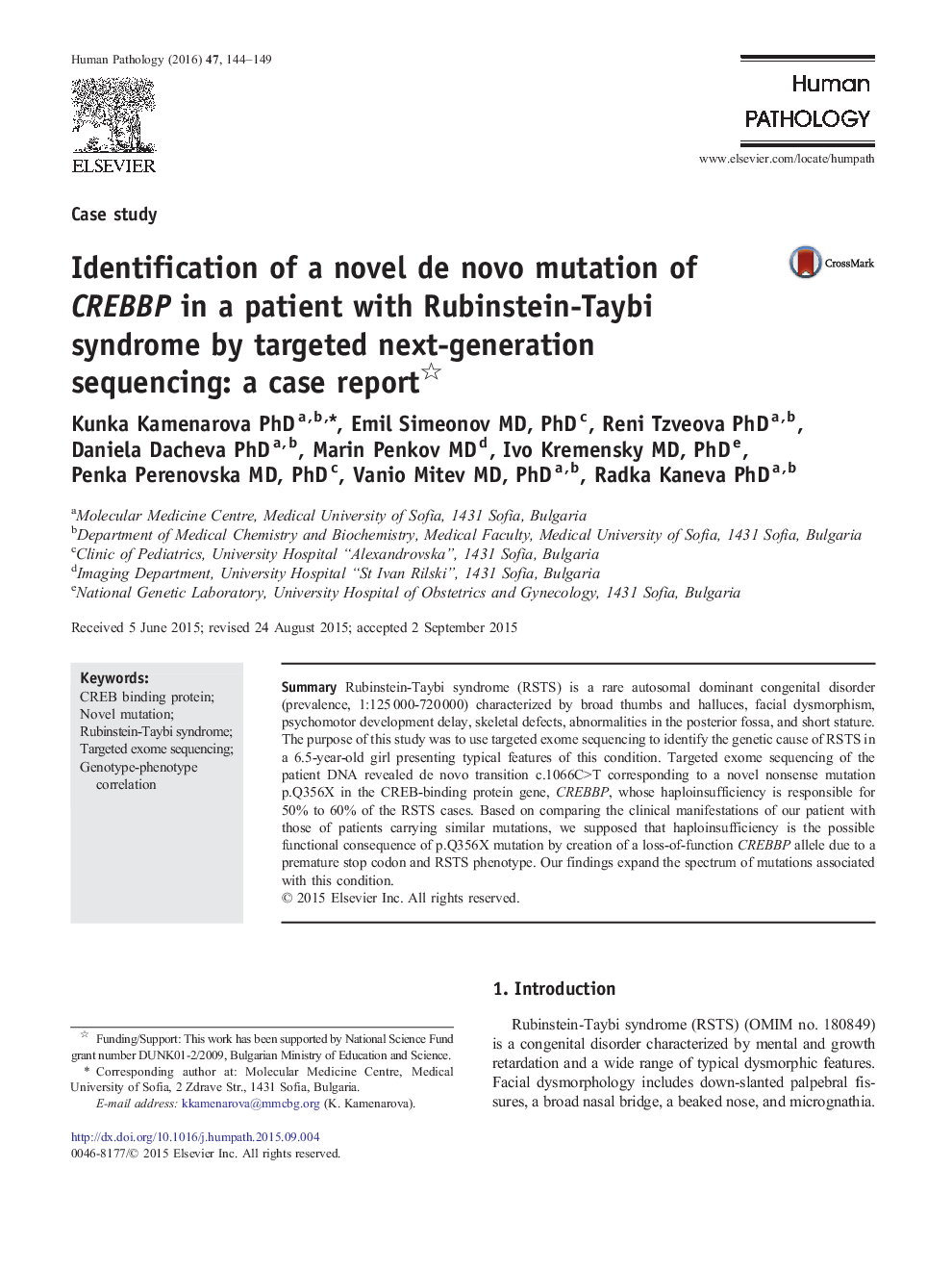| Article ID | Journal | Published Year | Pages | File Type |
|---|---|---|---|---|
| 4132500 | Human Pathology | 2016 | 6 Pages |
SummaryRubinstein-Taybi syndrome (RSTS) is a rare autosomal dominant congenital disorder (prevalence, 1:125 000-720 000) characterized by broad thumbs and halluces, facial dysmorphism, psychomotor development delay, skeletal defects, abnormalities in the posterior fossa, and short stature. The purpose of this study was to use targeted exome sequencing to identify the genetic cause of RSTS in a 6.5-year-old girl presenting typical features of this condition. Targeted exome sequencing of the patient DNA revealed de novo transition c.1066C>T corresponding to a novel nonsense mutation p.Q356X in the CREB-binding protein gene, CREBBP, whose haploinsufficiency is responsible for 50% to 60% of the RSTS cases. Based on comparing the clinical manifestations of our patient with those of patients carrying similar mutations, we supposed that haploinsufficiency is the possible functional consequence of p.Q356X mutation by creation of a loss-of-function CREBBP allele due to a premature stop codon and RSTS phenotype. Our findings expand the spectrum of mutations associated with this condition.
